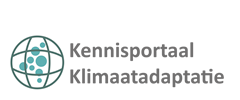Zuid-Limburg municipality of Meerssen to be climate-proofed
For years, entrepreneurs and residents in the centre of the municipality of Meerssen, in the southern part of the province of Limburg, have been experiencing serious waterlogging during severe downpours. Parts of the town centre are flooded, resulting in major material and financial damage. In extreme situations, such flooding could even lead to casualties. The waterlogging issues are rooted in the fact that Meerssen, like other Limburg municipalities, has insufficient capacity for the storage or discharge of rainwater. That is why a project has been launched to render Meerssen climate adaptive. The project also serves as a model for other regional projects.
This implementation project is a pilot commissioned by the Ministry of Infrastructure and Water Management. The project has gained momentum through a grant from the national government. The district water board has already completed three new rainwater buffers, whilst seven existing rainwater buffers will be expanded in 2020. Consequently, by 2020, the buffer capacity will already cover some 25 per cent of the total tasking set for 2025.
Four controls to combat waterlogging
On 8 November 2018, the Limburg district water board, the municipality of Meerssen, the Limburg Federation of Agriculture and Horticulture (LLTB), Staatsbosbeheer, the Limburg Waterworks Company, and the province of Limburg signed a collaborative agreement. This sets out their intention collectively to activate “four controls” in order to reduce waterlogging:
- The first control is intended to retain water in rural areas. This control is turned by farmers and nature managers: they are requested to retain an additional 10 mm of precipitation on their land. This will reduce the volume of water flowing from rural areas to urban areas.
- The municipality will be activating control no. 2: the urban area. Meerssen intends to disconnect some 50 per cent of the public paved surface area that it manages by no later than 2035. This means that rainwater will be retained, rather than run off via the roads, squares, and sidewalks to end up in the sewer and brook system. Rainwater can be retained in facilities such as wadis. With respect to private premises, the municipality has set down a similar ambition, involving rain falling on, e.g., rooftops, driveways, and terraces.
- The Limburg district water board is responsible for control no. 3: expanding and adapting the water system. The collaboration partners have agreed that the district water board will realise 90,000 m3 of additional water storage in the project area by no later than 2025.
- The residents of Meerssen will also do their part. They get to activate the fourth control: limiting damage to their own homes. Ways to achieve this goal include, e.g., greening their premises, building walls, or purchasing partitions. The municipality and the district water board will provide support to this end.
By activating these controls, Meerssen will definitely be prepared for the torrential rain that is expected once every 25 years in the future. That is the point of departure underpinning this collaborative agreement.
Sharing and developing knowledge
The experience and knowledge that the municipality of Meerssen and the Limburg district water board will gain through these measures will be shared with other parties during field trips, symposiums, and specialist meetings. The knowledge will also be utilised to tackle other waterlogging bottlenecks in the Heuvelland region.
In addition, the Limburg Federation of Agriculture and Horticulture (LLTB), the province of Limburg, and the Limburg district water board have commissioned Wageningen University & Research Centre to explore measures that farmers and market gardeners in Zuid-Limburg can take to reduce waterlogging. The measures developed will be incorporated into other regional projects.
Contact person
Marlie Berghs
M.Berghs@waterschaplimburg.nl
Waterschap Limburg
